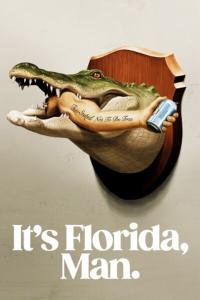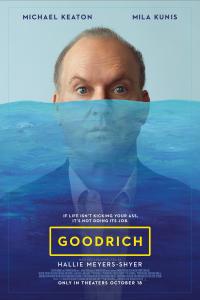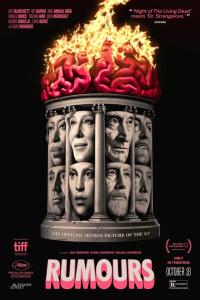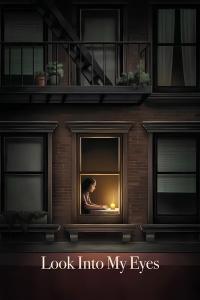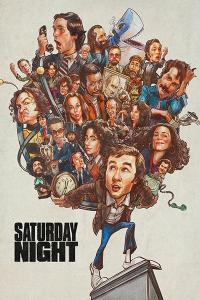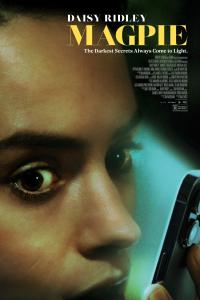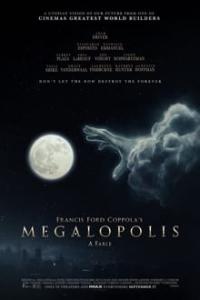Torrent details for "[art pop] (2024) Alana Yorke - Destroyer [FLAC] [DarkAngie]" Log in to bookmark
Controls:
Language:
 English
EnglishTotal Size:
251.74 MB
Info Hash:
8ab2d8cdd1478f36346ca3afbb7a2c835a88832d
Added By:
Added:
26-05-2024 21:38 (edited 07-07-2024 22:46) by DarkAngie
Views:
224
Health:

Seeds:
31
Leechers:
8
Completed:
102
Review:
Eight years in the making, Nova Scotia singer-songwriter Alana Yorke's full-length debut album Destroyer is an art-pop outpouring of creative freedom and flexibility. Infused with themes of grief, loss and resurrection, Destroyer is both an intimate portrait of the artist and her relationship to creativity and a bold commitment to musical transformation. Like a ripple in still water, Yorke's masterful songwriting and subdued lyricism are a series of suggestions that nod to a deeper meaning that lies hidden beneath the surface. For Yorke, Destroyer is the multi-year culmination of an artist looking to reorient and reinvent themselves. The album is informed by Yorke's personal experience with PTSD, the result of a scuba diving accident that permanently altered her relationship with both the ocean and her own creativity. Overcoming the complexities of life with PTSD and its myriad challenges, an experience she describes as "debilitating," Yorke was met with another one-two punch in 2022 when she woke up and found herself unable to move her left arm. Numerous hospital tests later, Yorke discovered that a hemorrhagic stroke had affected the right hemisphere and parietal lobe of her brain. For anyone, recovery from this event would pose a significant challenge. For Yorke, a working musician and lifelong artist, the experience had the potential to be devastatingly life-altering — the areas of her brain most affected were responsible for both creative expression and sensory input.
And yet, somewhat unexpectedly, Yorke discovered a renewed sense of creative expression and purpose following the stroke. The psychological burden of mitigating the daily effects of PTSD suddenly lifted, and in its serendipity, Yorke tapped into a creative channel that allowed for a newfound sense of freedom. The result of this fundamental change was Destroyer, a journey to the ocean floor and back that explores Yorke's experiences breaking free from physical limitations and piercing the veil of creative self-reflection. A bold entry to Destroyer, discordant strings open "Tidal Wave" before launching into driving drums and a delectably catchy guitar. Although Yorke claims the track was written as, "a bit of a joke song after watching Wet Hot American Summer: First Day of Camp," the song is an example of how truly accidental writing a palatable, catchy pop hit can be. Yet despite its perceived simplicity, the "Tidal Wave" is breathlessly addictive — the mark of a well-crafted pop song — and also offers a glimpse into the larger themes that resonate through the album. The aforementioned string glissando that marks the entry to the song was inspired by ocean wave modelling and created in collaboration with Clark Richards, a physical oceanographer who designed an app to model glissando based on pitch range and rate of change.
Like the ever-pulsing tide, the album continues with another pop-friendly earworm, "All the Flowers." Yorke declares, "I want all the flowers in the world / Floating on the ocean," conjuring a crystal clear image that is devastatingly haunting. As a personal expression of grief and loss related to the experiences of depression and PTSD, it paints not only a picture of personal loss but also of climate anxieties, coloured by our human relationship to the ocean and its expansive power. Although top-heavy with Yorke's signature art-pop focus, Destroyer meanders into uncharted waters with tracks "Marion," "Preludium" and "Léa." Here, classically inspired strings and piano are grounded by Yorke's striking vocalisations, which are both cyclical and hypnotic. These repetitions draw on a long tradition of call and response typically found in maritime sea shanties, a genre commonly sung as work songs by labourers and seafarers. But despite the nature of this folk tradition as social music, on "Marion," Yorke is undoubtedly alone among the waves. This is reminiscent of other legendary themes — the likes of Odysseus, bound to the mast of his ship in a desperate attempt to resist the call of mythic sirens — but also contemporary works like Weyes Blood's Titanic Rising or Aldous Harding's Party, albums that evoked a sense of intense solitude amid great waves of world-swallowing fury. There's a sense that Yorke is alone in her struggle to overcome not only the external pressures that threaten her but also the seeds of her own personal destruction.
One of the album's strongest declarations is "IRL," a track that maintains the hypnotism established mid-album but adds to its vitality with a climactic synth and layered vocals. At surface level, the song is impossibly simple: "In real life" becomes a mantra repeated throughout the song's four-minutes-and-change runtime, only added to later with the impactful lines, "Why is it so hard to live in real life? / Why is it so hard to go outside in real, in real life?" The song is the perfect encapsulation of the calm surface and murky depths that Yorke establishes throughout the album — in its repetitive chant the listener is encouraged to reflect on their own reasons for living. In an information age defined by a barrage of short-form video, phone addiction and a lack of genuine connection, the song both shatters the illusion of our idealized virtual selves and challenges the listener to boldly live on, driven by their own search for authentic truth. As Destroyer concludes with the heartache of "Too Hard," it's clear that a transformation has occurred. After exploring the pain that can be found within, a pain that lives not only in the mind but also in the body, "Too Hard" offers a chance at hope. "When you're down, Love, let it go / And when your whole world starts to fall to pieces, let it go," Yorke sings, suggesting a way ahead for both herself and the listener. Within the song is the self-assertion that through release, healing can begin. The song's orchestral strings give it immense texture, ending the album on a bittersweet note in which Yorke is fully cognizant of where she has been and where she is going.
For this listener, traversing through each step of the album and reflecting on my own struggles with PTSD, "Too Hard" was a deep emotional release and a re-assertion that there is a next step, a path forward. Just like the ocean tide that never ceases and the petals of all the flowers in the world, we can find comfort in the cycles of nature and the knowledge that there's a transformative power to our own alteration. We find collective strength in the freedom that comes from moving forward, moving on, and breathing underwater. — by Em Medland-Marchen on exclaim

Track List:
01 - Tidal Wave
02 - All the Flowers
03 - Into the Night
04 - Marion
05 - Preludium
06 - Léa
07 - IRL
08 - Sound
09 - Let Me Go
10 - Too Hard
Media Report:
Genre: art pop
Origin: Halifax, Nova Scotia, Canada

Format: FLAC
Format/Info: Free Lossless Audio Codec
Bit rate mode: Variable
Channel(s): 2 channels
Sampling rate: 44.1 KHz
Bit depth: 16 bits
Compression mode: Lossless
Writing library: libFLAC 1.2.1 (UTC 2007-09-17)
Note: If you like the music, support the artist


